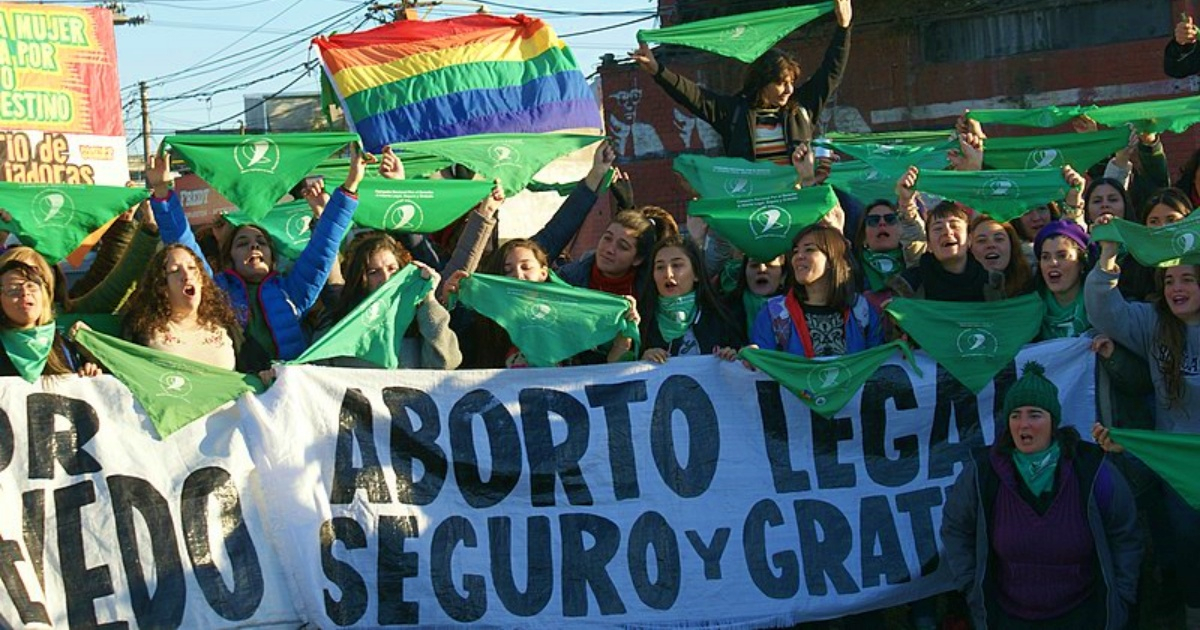
A group of legislators from the party led by the Argentine presidentJavier Miley, La Libertad Avanza, presented this Wednesday aproject to repeal the abortion law and consider it a criminal offense, even in case of rape.
The project presented to the Chamber of Deputies by Milei's parliamentary group calls for the repeal of theLaw 27,610 on Voluntary Interruption of Pregnancy (IVE) - approved on December 30, 2020 and promulgated on January 14, 2021 by the government ofAlberto Fernandez- and that abortion be declared a crime, both for the woman and for those who participate in the intervention, said an office from thespanish agencyWHICH.
However, the presidential spokesperson,Manuel Adorni, assured this Thursday in his usual press conference that the decision to discussThe repeal of the legal abortion law “is not part of the President's agenda, has not been a decision of the President and is not promoted in any way by the Executive Branch”.
“We are concerned, dedicated and working without any kind of rest on other issues that are much more urgent and, if you will, more relevant than this issue,” said Adorni.
The libertarians' proposal occurs in the midst of the political crisis following the fall of the“omnibus law” with which Milei's government intended to reform the country, and was presented by its spokesperson in the Chamber of Deputies, Oscar Zago, and also signed by Lilia Lemoine - very close to Milei's circle - and four other legislators. The project is an initiative of representative Rocío Bonacci.
The bill proposes penalties of three to 10 years for those who "cause a woman's abortion without her consent, which could reach 15 in the event of the mother's death," the note noted. “In the event that there is consent, the penalties would be from one to four years, which could increase to six if the woman dies.”
The IVE law allows for voluntary termination of pregnancy up to the 14th week of gestation “safely, legally and free of charge”, within a maximum of ten days from its request, rememberWHICH.
However, the note states, after those 14 weeks, abortion is only legal “under two causes that have been in effect since the approval of the Penal Code in 1921: when the woman's life is in danger or if the pregnancy was the result of rape. ”.
The project of the Milei deputies also seeks to put an end to what was legislated 103 years ago, which determined that the crime is not punishable.abortion in cases of risk to the woman's health or rape. “The libertarians' proposal only vaguely mentions cases of 'risk of life,'" notes a note from the Spanish newspaperThe world.
The libertarians' proposal establishes the intervention of a judge in case ofrape: "The judge may order that the woman be exempted from the sentence based on the reasons that prompted her to commit the crime, her subsequent attitude and the nature of the fact."
The approval in December 2020 of the abortion law in Argentina - a pioneer behind those of Cuba and Uruguay in a deeply Catholic region like Latin America - occurred after a long and fervent debate.
The norm seeks to prevent death due to malpractice of women who perform clandestine abortions, through the legal and free interruption of pregnancies up to the fourteenth week of gestation.
The law was approved by 38 votes in favor, 29 against and one abstention.
The project, promoted by President Fernández,divided the waters in Argentine society and also in Congress, where he received the support of pro-government and opposition legislators.
Weeks before,The norm had been approved by the Chamber of Deputies despite the opposition of the local Catholic Church. Even Pope Francis - an Argentine national - then criticized the initiative through a tweet: "Every person discarded is a child of God."
In 2018, the Argentine Senate said no to abortion, rejecting the voluntary interruption of pregnancy project, which had alreadyhad been supported in the Chamber of Deputies.
The final vote counted 38 senators against, 31 in favor, two abstentions and one absent. In this way, the interruption of pregnancy remained a crime punishable by up to four years in prison, according to the 1921 law.
What do you think?
COMMENTFiled in:






